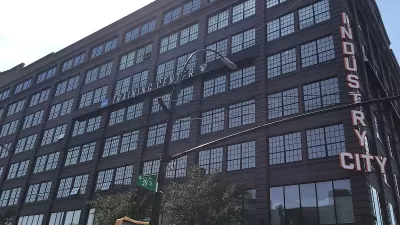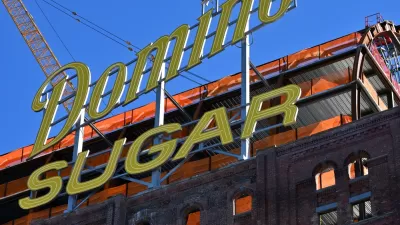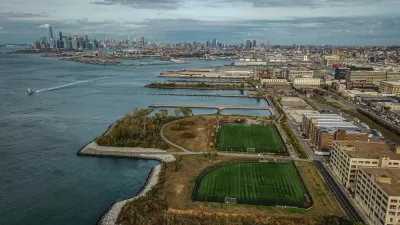Residents are arguing that a Williamsburg development would negatively affect the neighborhood. But it’s a grassroots effort to protect the status quo in a neighborhood where gentrification benefited them.

"Opponents of a rezoning that is needed to allow a big new residential development called River Street, on the Williamsburg waterfront, are making some of the exact same arguments used by foes of a 2005 rezoning in the same Brooklyn neighborhood," writes Steve Cuozzo.
The site is currently zoned for industrial, and wealthy residents in the area want it to stay that way. They say that the proposed development would affect home values, cause overcrowding, and obstruct views.
But Cuozzo points out that many of these residents opposing River Street benefited the 2005 rezoning that brought 12,000 new homes to the area and spurred gentrification.
"Fair scrutiny and community input are fair. But while rezonings are rightly drawing longer and harder looks than in the past, it is worth keeping in mind where the harshest looks are coming from. At River Street, they aren’t from the poor. As in many other contexts, too often NIMBY-ism is all about the boutique preferences of the well-heeled and comfortably entrenched," says Cuozzo.
FULL STORY: Yet another zoning fight that’s all about protecting the rich

Alabama: Trump Terminates Settlements for Black Communities Harmed By Raw Sewage
Trump deemed the landmark civil rights agreement “illegal DEI and environmental justice policy.”

Planetizen Federal Action Tracker
A weekly monitor of how Trump’s orders and actions are impacting planners and planning in America.

The 120 Year Old Tiny Home Villages That Sheltered San Francisco’s Earthquake Refugees
More than a century ago, San Francisco mobilized to house thousands of residents displaced by the 1906 earthquake. Could their strategy offer a model for the present?

In Both Crashes and Crime, Public Transportation is Far Safer than Driving
Contrary to popular assumptions, public transportation has far lower crash and crime rates than automobile travel. For safer communities, improve and encourage transit travel.

Report: Zoning Reforms Should Complement Nashville’s Ambitious Transit Plan
Without reform, restrictive zoning codes will limit the impact of the city’s planned transit expansion and could exclude some of the residents who depend on transit the most.

Judge Orders Release of Frozen IRA, IIJA Funding
The decision is a victory for environmental groups who charged that freezing funds for critical infrastructure and disaster response programs caused “real and irreparable harm” to communities.
Urban Design for Planners 1: Software Tools
This six-course series explores essential urban design concepts using open source software and equips planners with the tools they need to participate fully in the urban design process.
Planning for Universal Design
Learn the tools for implementing Universal Design in planning regulations.
Clanton & Associates, Inc.
Jessamine County Fiscal Court
Institute for Housing and Urban Development Studies (IHS)
City of Grandview
Harvard GSD Executive Education
Toledo-Lucas County Plan Commissions
Salt Lake City
NYU Wagner Graduate School of Public Service





























